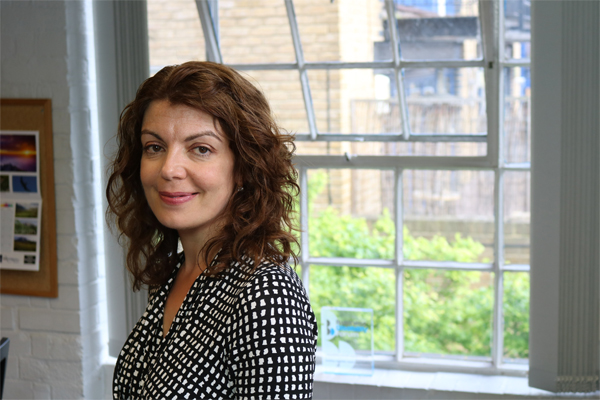To mark International Day of Persons with Disabilities on 3 December, Business Disability Forum’s CEO Diane Lightfoot shares why we need to get better at listening to the experiences of disabled people.
As we mark the United Nations International Day of Persons with Disabilities on 3 December, it is a good opportunity to take stock of where we are when it comes to disability inclusion within our own organisations. With so many disability awareness days throughout the year, there is a risk that they can become tick box exercises – a disability or condition is focused on for a day and then forgotten for the rest of the year.
That is why for the UN day this year our focus is very much on listening – not just doing. Listening may seem like a passive word, but listening in the right way – in an active way and with a desire to learn – is very much needed if we are to achieve true inclusion and equality in our workplaces and society more widely.
LISTENING TO EXPERIENCES OF DISABLED PEOPLE
In order to listen you have to first be ready to ask the questions. So, what sort of questions should you be asking your disabled employees and customers on and around this UN day? Here are some suggestions:
- As someone with a disability or long-term condition, what do you think we currently do well as your employer?
- What two things would you change to make working at this organisation with a disability easier?
- What would help you love your job more than you do now?
- How could we serve you better as a customer or service user?
- How could we make our products and services better or easier for you?

DISABILITY INCLUSION
You may think that you already know the answers to those questions, but you may be surprised. ‘Getting to equal 2020: Disability Inclusion’ – a fascinating study by our Partner Accenture – found around a 20% perception gap between how psychologically “safe” senior executives thought their employees would feel about talking about a disability or mental health condition and how safe those same employees actually felt.
Similarly, our 2019 Great Big Workplace Adjustments Survey found that 34% of disabled respondents who would have benefited from adjustments had not asked for them because they were afraid their employer would treat them differently.
And it’s not just about employees. Earlier this year, BDF published consumer research into the buying experiences of disabled people: ‘What disabled consumers choose to buy and why’ supported by Microsoft. The research found that four out of 10 disabled people didn’t feel able to request adjustments or identify preferences or needs when making a purchase. Four out of 10 disabled people also left or abandoned an online or in-person shopping task early due to barriers.

GETTING THE LANGUAGE RIGHT
Inclusion needs to be at the centre of all your processes and communications. It also needs to be reflected in the language that your organisation uses. Getting language right around disability can feel very difficult. As a result, many organisations simply avoid having the conversation at all. This may seem like the easiest solution in the short term, but long term it can result in disengagement of employees and customers.
Once again, the key here is to be ready to ask the questions and to listen what people have to tell you. In our experience, language around disability is a very personal thing and can be influenced by many factors including culture and individual experience. What works in one situation and location, may not work in another.
To mark the UN day, we have launched ‘Lost in translation: A global guide to the language of disability’ sponsored by HSBC to help businesses start the conversation and to work with employees and customers to develop narratives that work for everyone.
WORKPLACE EXPERIENCES
From talking to our members and the disabled people that work for them, we know that workplace practices and workplace experiences can be two different things. Our 2019 Great Big Workplace Adjustments Survey also looked at which adjustments people are using, their experiences of accessing adjustments and the impact of those adjustments on their work.
The survey found that 80% of people who were working with adjustments had found the adjustments helped them stay in their job and/or made them more productive but at the same time, far too many people were waiting too long to get the adjustments they needed.
One pandemic and a whole new world of work later, we are repeating our Great Big Adjustments Survey to hear from disabled people about how their workplace experiences have changed. We want to hear from as many people as possible so please do complete the 2023 survey on the BDF website before 9 January.
TAKING ACTION
Listening should always lead to action and that is why we are also marking this UN day by launching our Disability Smart Awards 2023, sponsored by Microlink. The awards are all about sharing best practice and learnings from organisations that have taken the time to listen and to understand the needs of disabled people.
We are looking for projects that have made a lasting difference. There are 13 award categories in all this year. These include inclusive workplace experience, recruitment and customer service. The awards are free to enter and open to UK and global organisations of any size in any sector. Click here to find out more.
CONCLUSION
So, on this year’s International Day of Persons with Disabilities, I encourage you to listen to your employees, your consumers, your clients, and your service users. Ask them how they feel and how it feels to work with, engage with or shop with you. Ask them about the language that they prefer.
Above all, use the opportunity to start a conversation and put in places the processes, which ensure that this extends way beyond 3 December. Together, find out what works and what doesn’t. Don’t be afraid of getting it wrong and keep learning.






































